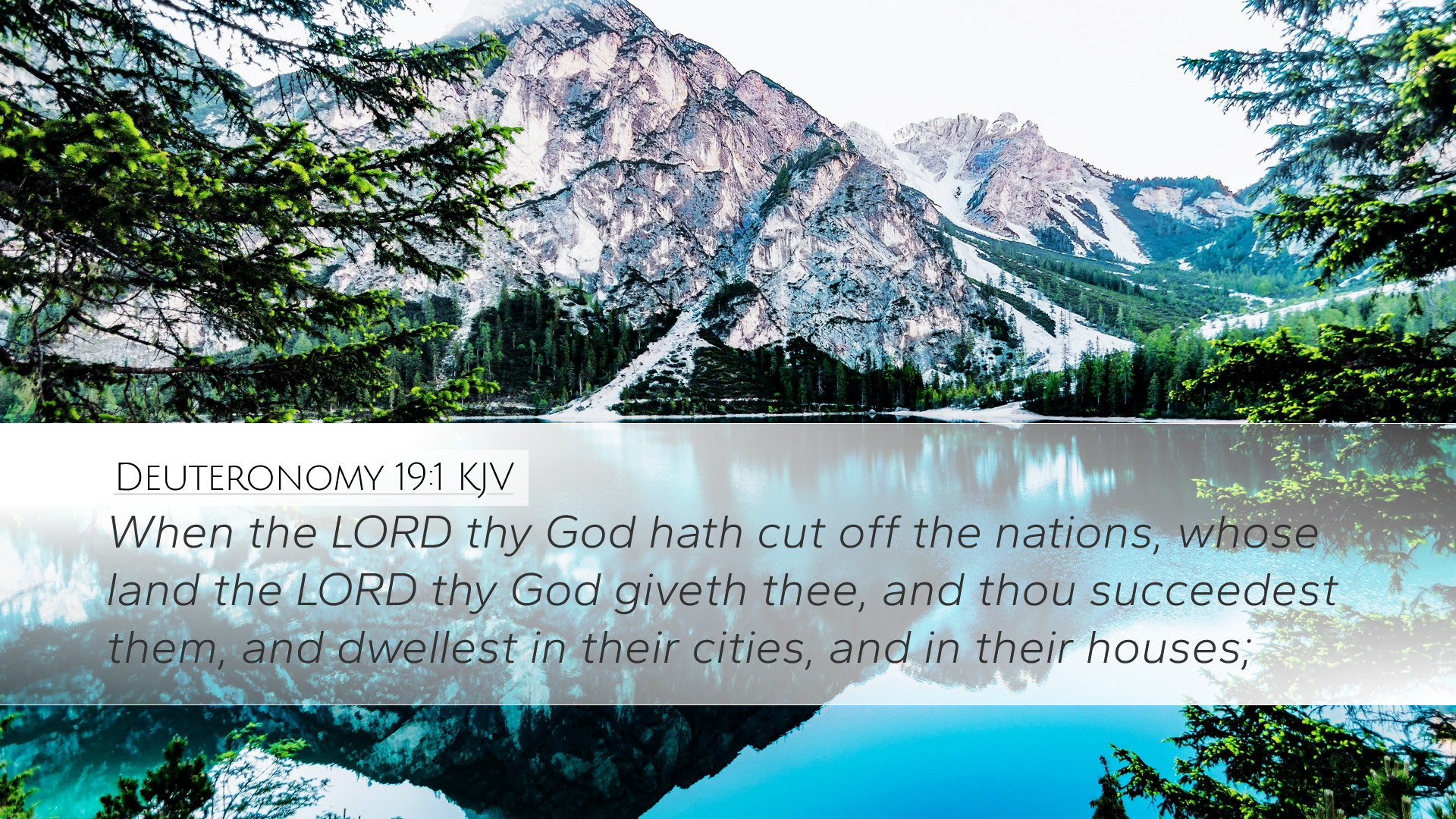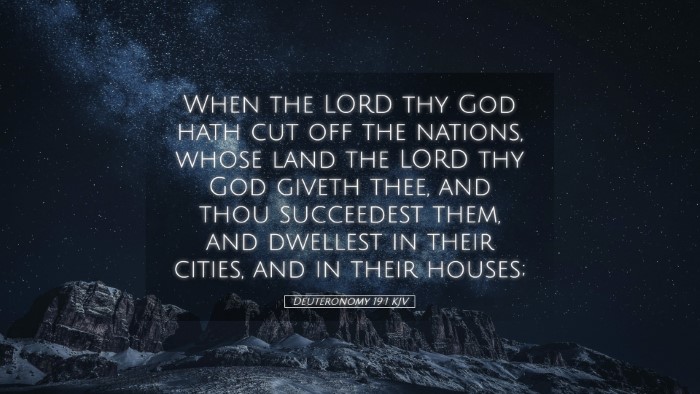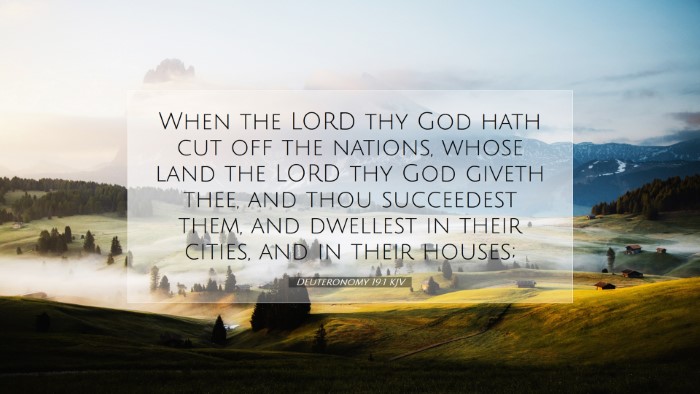Commentary on Deuteronomy 19:1
Bible Verse: "When the LORD your God has destroyed the nations whose land He is giving you, and you have displaced them and settled in their towns and houses," (Deuteronomy 19:1, NIV)
Introduction
The Book of Deuteronomy is a fundamental aspect of the Pentateuch, encapsulating the covenantal relationship between God and the Israelites. When we examine Deuteronomy 19:1, we encounter crucial themes of justice, the land, and the divine assurance that accompanies God’s promises. This verse places emphasis not only on the physical conquest of the land but highlights the moral and theological implications inherent in God's instructions for His people.
Contextual Analysis
1. Historical Context:
The verse comes at a time when the Israelites are on the brink of entering the Promised Land, a gift from God after their liberation from Egypt. The destruction of the nations is not merely a military conquest; it is a divine judgment against the iniquities committed by those nations.
2. Theological Context:
This is a pivotal moment reflecting God's justice. The Israelites are not just conquerors but participants in God's holy plan. The mention of "nations" indicates the longstanding moral decay of the peoples inhabiting Canaan, leading to their dispossession.
Commentary Insights
1. Matthew Henry on Justice and Authority:
Matthew Henry elaborates on this verse, emphasizing that the distinctiveness of the Israelites as God’s chosen people requires a stringent adherence to justice. The destruction of the nations serves a dual purpose: delivering Israel and executing justice upon those whose wickedness had reached a culminating point. Henry asserts that God’s justice is both punitive and redemptive, spotlighting the importance of obedience to God’s commands in the settlement of the land.
2. Albert Barnes on God’s Sovereignty:
Albert Barnes highlights the theme of God’s sovereignty in this verse. He notes that the land belongs to God, and as such, the Israelites are His appointed stewards. The destruction of the nations signifies more than mere conquest; it represents God’s authority over nations and His ultimate plan for Israel. Barnes also draws on the implications for future generations, emphasizing the importance of teaching the original narrative of divine intervention to the children of Israel to ensure the continuity of faith.
3. Adam Clarke on Moral Responsibility:
Adam Clarke points out the moral responsibility that comes with the granted land. He underscores that the Israelites are to govern the land not merely as conquerors but as custodians under God’s covenant. Clarke warns against the dangers of moral decay like that seen in the nations which were destroyed and stresses that the blessing received from God comes with a mandate for righteousness—to love their neighbor and execute justice as they have received grace.
Exegetical Observations
The phrase “when the LORD your God has destroyed the nations” indicates a certainty grounded in divine promise. The anticipated actions are not just random events, but part of a larger narrative where God’s sovereignty shapes the course of history. The verb “destroyed” suggests a complete removal of former inhabitants, emphasizing the total overhaul required for the establishment of a holy people in a holy land.
Thematic Considerations
- Divine Justice: This verse lays the groundwork for understanding God’s righteous character, reflecting on justice as both a societal and theological necessity.
- Land as Covenant: The granting of land signifies more than territory; it embodies God’s promises and the unfolding narrative of redemption.
- Community and Identity: The focus is on collective responsibility; as the Israelites assume the land, they must remember their identity and calling as God’s chosen nation.
Practical Applications
The implications of Deuteronomy 19:1 resonate powerfully in contemporary contexts for pastors, theologians, and students:
- Justice as Foundation: Understanding that God’s justice should guide community actions and structures.
- Stewardship of Resources: Reflecting on the significance of land and resources in the light of divine ownership and our role as stewards.
- Moral Integrity: Recognizing the need to resist moral decay by holding firm to the standards of God’s Word.
Conclusion
Deuteronomy 19:1 is more than a statement about conquest; it encapsulates a rich theology of divine justice, covenantal promise, and moral responsibility. As we study this text, may we be reminded of our duties as bearers of God’s justice and grace, understanding that we are part of a narrative that God has been weaving throughout history.


